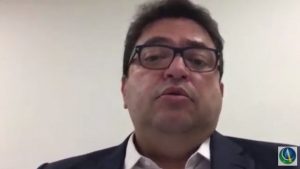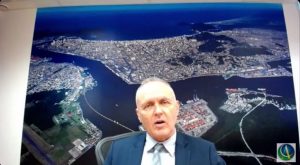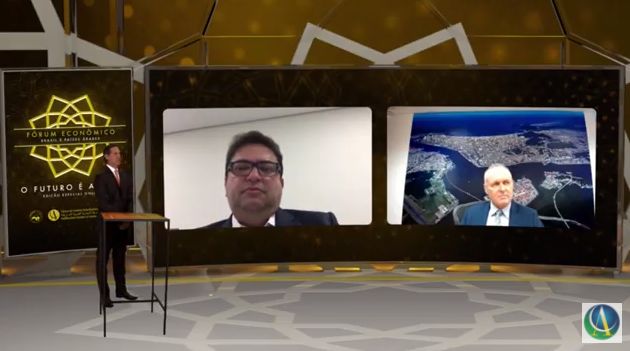São Paulo – In 2015, when ESG didn’t arouse so much interest from investors, BRF was the first Brazilian company to raise funds abroad by issuing green bonds. “ESG strategies and sustainability are built into our culture,” BRF Global CEO Lorival Nogueira Luz said during a CEO talk in the Economic Forum Brazil & Arab Countries hosted by the Arab Brazilian Chamber of Commerce (ABCC).

The executive said BRF is the only food company in Bovespa’s Corporate Sustainability Index (ISE) and mentioned ten ESG (environmental, social and governance) initiatives by BRF, including having signed the UN Global Compact in 2017, implementing rural tech programs, removing animal growth-promoting antibiotics, and educating the society to prevent food waste.
When talking about the rational use of energy, Luz stressed that 93% of its energy consumption comes from renewable sources. “Our commitment is, in the next few years, to have our own renewable energy production,” he said, adding that now over 31,000 hectares of forest serve as a renewable energy source for its plants and help in climate regulation.
In the Arab world for almost 50 years and having a plant in Abu Dhabi since 2014, BRF took a major step when it started reusing 100% of the water in its UAE operations. “The savings amount to 72,000 cubic meters a year,” Luz said.

Half a world away, DP World, an Emirati multinational port and maritime services company that is present in over 50 countries, has also brought some sustainable practices when started its operations in the Port of Santos, in 2006. “Our terminal is a standard in environmental development,” DP World Santos CEO Dallas Hampton said. “We have several environmental and educational projects to engage the whole community.”
According to Hampton, the investments surpasses BRL 12 million (USD 2 million) in mangrove and environment conservation efforts and BRL 6 million (USD 1 million) in educational efforts to giver over 13,000 public school students computers, hardware and software. “We also have groups working with hospital NGOs in local communities,” he said.
DP World global goals include training 2 million children from over 45 countries by 2050, and cutting its greenhouse gases to zero by then. The company also invests in ocean protection and cleaning of beaches, having devoted over 10,000 hours of its employees in task forces to collect plastic waste from the seaside.
The CEO Talk was moderated by ABCC director Daniel Hannun.
Check out the full coverage on ANBA.
*Special report by Camila Balthazar for ANBA.
Translated by Guilherme Miranda




